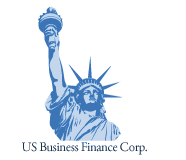Raising Operating Capital – to Borrow or Sell or Cash Advance?
 Raising operating capital usually presents two financing options: taking on debt or selling equity – each with its benefits and trade-offs. US Business Finance Corp has worked with business owners with a third option – business cash advances that better prepares businesses for presenting their business plan to investors and for applying and securing business loans. Our financing professionals help you assess the affect of raising capital by debt, investment or cash advances. Your accountant can help you further assess how your choices will affect on your business taxes.
Raising operating capital usually presents two financing options: taking on debt or selling equity – each with its benefits and trade-offs. US Business Finance Corp has worked with business owners with a third option – business cash advances that better prepares businesses for presenting their business plan to investors and for applying and securing business loans. Our financing professionals help you assess the affect of raising capital by debt, investment or cash advances. Your accountant can help you further assess how your choices will affect on your business taxes.
Investment Factors: The investment financing option entails selling partial ownership of the company to one or several investors. The current owners’ equity is diluted by the percentage of shares sold. In order to sell shares, the company’s business plan should include a way and timing for the investors to liquidate their investment. Possible exits would be selling their shares at a public stock sale (IPO) or a private sale of the company. A possible buyer would be another company, either a competitor or a complementary business seeking to expand their markets. For investors that are interested in long-term ownership, such as family members, the return on the investment may be the dividends the company periodically pays.
While raising capital through equity does not incur monthly debt payments it may, in diluting your shares, cause a shift in control of the company. Control may not shift 100%, but it may take more time to build a majority consensus for major business decisions.
Factors involved with Business Debt: Raising capital through loans is usually a simpler route that also provides several choices in itself. Debt may be incurred through a line of credit, a small business loan or a business cash advance. For small businesses, the owner usually has to also add their personal guarantee to loans. Debt financing allows owners repayment variables in the interest and the term of the loan. The following are three basic types of debt:
- Traditional loans requiring collateral, an asset pledged as security for the loan, with fixed regular payments. These loans are usually more long term in nature.
- Line of credit also requires collateral, however many financial institutions offer credit based on a business’s average monthly level of accounts receivable.
- Business cash advances are short-term debts that pledge a portion of future credit card sales to repay the debt. The payments are not fixed in amount or time, but subtracted from each Visa and MasterCard sale. A benefit of a cash advance is the fast application process, the rapidity that funds are made available, and the advance does not show up as a typical liability on your balance sheet.
Debt is usually incurred to fund specific projects that have specific time lines, such as business expansion or business equipment financing. The debt serves as in investment toward greater cash flow and profitability. Revolving accounts with suppliers is also a short-term debt that helps build your company’s credit history.
When reviewing the benefits and costs of the equity and debt avenues of raising working capital be sure to include your attorney and accountant. They can better pin point how each can benefit your company and fulfill your long-term strategy. US Business Finance Corp offers assistance and funding sources to business owners looking for investors or commercial loans. Our business cash advance, the alternative financing option, has provided many entrepreneurs with working capital to meet emergency needs as well as business opportunities that called for an increase in cash flow on short notice. Contact us to review your working capital needs.
Related Images:
Filed under: Business Cash Advance
